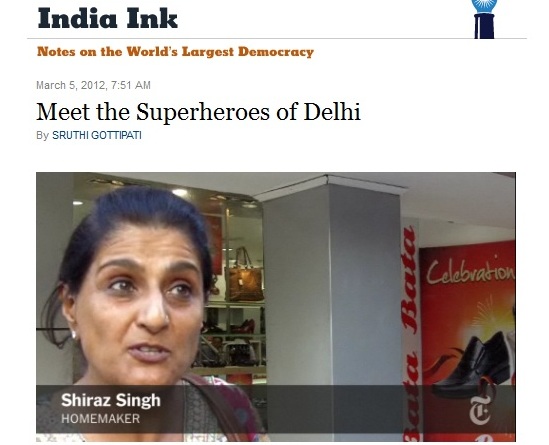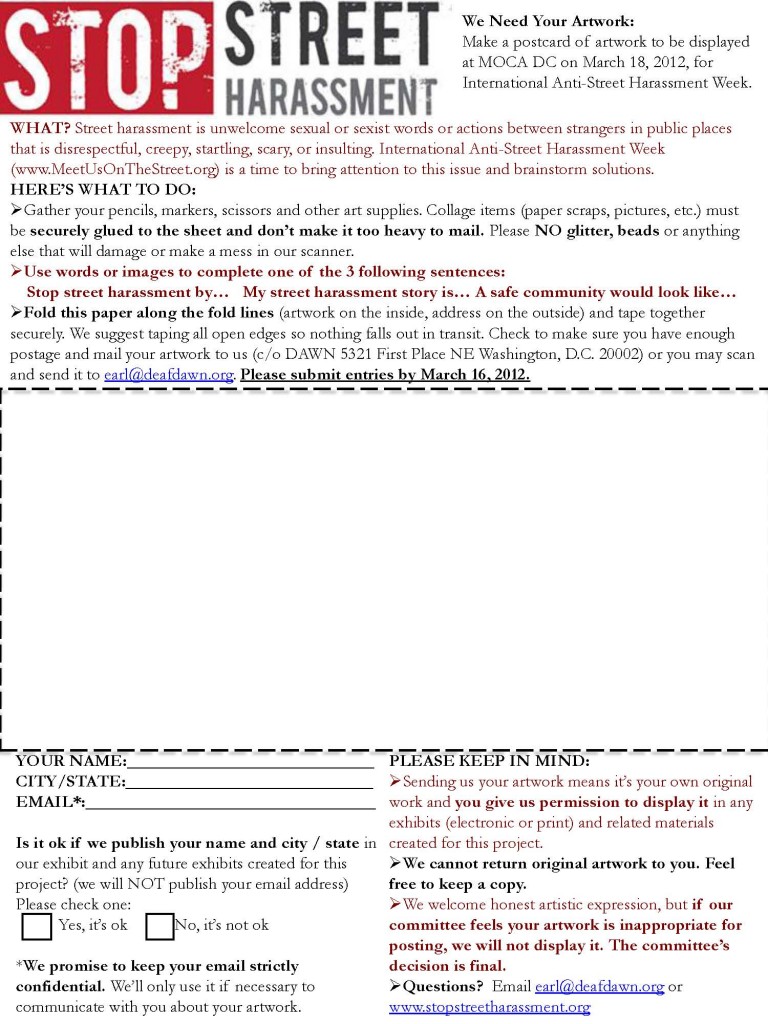 This is part of the advice that Shiraz Singh (the woman on the right) gives her daughter when faced with aggressive street harassers.
This is part of the advice that Shiraz Singh (the woman on the right) gives her daughter when faced with aggressive street harassers.
Watch as women like Singh in Delhi, India, one of the least safe cities for women in the world, explain how they defend themselves against street harassers in a New York Times video (there is an accompanying article, too).




